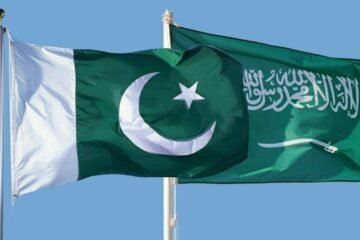Redeemer Complex

A while ago, Prime Minister Imran held a live Q/A session and some of his remarks agitated and aggrieved a certain segment of society. However, we need to focus our attention on another problematic line of thinking displayed by a caller who complained to Imran Khan about approaching IMF. The way the caller framed her grievance was more like a child complaining to her parents about their distressful behaviour and less like a rational voter holding a political agent to account for going back on his promises.
The casting of state leaders into paternalistic role is neither new nor exclusive to Imran khan’s voter base. If anything, this attitude is rooted deep in our national psyche. We always seem to look to career politicians as our ‘redeemers’ who will solve our problems. This type of magical thinking have led us to believe that all we need to do is get the right person in the right position and then leave the rest to him. In our Bollywood-inspired localized fairy tale, the redeemer will then fight off bad guys, eradicate corruption, strengthen institutions and soon we’ll be on our way to fulfilling our destiny i.e. the newly minted hegemon of the world. Analysts have called it ‘Redeemer complex or Cinderella syndrome’. As per Zulfiqar Gillani-a notable Pakistani psychologist: “We always seem to be looking for a redeemer, a father-figure in psychological parlance, someone who will solve all our problems or at least promise to do so.” This type of magical thinking has translated itself into highly reactive and emotional approach to politics, adoption of a passive role in the greater scheme of things and consequently has fed to our defeatist mentality.
The adverse impacts of this type of thinking can be seen at individual, group and state level.
At individual level, the redeemer complex is reinforced and amplified by outer-directed approach-the belief that locus of power lies in outside environment. According to a study conducted by Syed Afzal Moshadi Shah Dr. Shehla Amjad in 2011, Pakistan’s society is considerably outer-directed and people with such an approach neither take responsibility for their actions nor believe that their actions could have altered the outcome. Case in point: public’s dismissive attitude towards following SOP amidst raging 3rd wave of coronavirus. This also entails that in a structure vs agency debate, structures always end up subjugating human agency. If a state institution is exploitative then it’s the way it always has been and there is nothing an individual can do to influence the conduct. The only saving grace can be a father figure belonging to the highest echelons of power (never mind that those running the institution are human beings who decided to use their agency to subjugate the population en masse) and if that person fails to do so, then, all our hopes and dreams of bright future are quashed and we are left to wallow in self-pity until we can set our eyes upon another redeemer.
At group level, these overlapping attitudes combine to create a warped-up concept of group identity. Each group considers itself to be at risk of being exploited by other groups and hence seeks the patronage of a strong leader who will not only protect their honor but will also lead them towards glory. The leader or redeemer is more often than not followed blindly and is tasked with dealing with the grievances of the group members along with protecting their political interests. This personification of power is dangerous for it gives unrestricted power to the leader without any strict accountability allowing people to continue living in their self-created bubble of ignorance and passivism.
Two misconceptions that are bound to arise about this group-level analysis must be justified here. One misconception has to be about the role of colonial past in creating super-ordinate and sub-ordinate groups and the other one is about the role of majority groups in perpetuating violence against the minorities. First, colonial legacy and the delineation of different groups across administrative lines arguably played a role in creating this trust deficit and risk perception amongst groups. But post-independence, the elite (both landed and urban) and state intelligentsia purportedly built upon this colonial legacy rather than gradually doing away with it for self-enrichment and consolidating political power. Hence, colonial legacy, despite contributing to this trust deficit becomes irrelevant in this context. It is a sunk cost. The real issue lies with ‘the few’ who continue to exploit trust deficit thereby fanning the flames of group violence. The second misconception has to do with the fact that there are some groups-mostly regional, religious, or sectarian minority groups-who have been marginalized, alienated and brutalized by other majority groups. But again the logic sticks out, whenever there is communal/group violence; it is mostly in response to the call and propaganda by leader(s) of the majority group alleging that a given minority (or its members) has disrespected the beliefs/sacred symbols of the majority group and is a threat to their identity.
When analyzed at the state level, these underlying attitudes and behavioral patterns create the Frankenstein’s monster that is Pakistan’s demagogues who are more than happy to cast themselves into the role of the father-figure/redeemer creating a parasitic relationship with their voter base. By virtue of this relationship, there exists a clear demarcation between the ruler and the ruled, the governor and the governed because redeemer and redeemed must be distinguished. This demarcation is so clear-cut that even the party workers who somehow become part of the political process are type casted into the roles of ‘servers’ and ‘facilitators’ of the redeemers. Their job description DOES NOT include having political aspirations like running for the public office. Consequently, the emotional and reactive approach to politics, passivism and defeatism of the public combine to provide ample opportunities to the demagogues to exploit them for their self-enrichment without losing their grip on power.
So, is there a way out? In my opinion, whether there is a way out or not is entirely dependent upon the public/voters. Do they feel the need of a way-out? If yes, then, can they forge it? For the hopes of any top-down solution to this issue must be quashed immediately. As an Urdu aphorism goes: “If the horse becomes friends with the grass, what will it eat…”
Stay tuned to BaaghiTV for more. Download our app for the latest news, updates & interesting content!











Maa Shaa ALLAH.. A wonderful article.. keep it up.